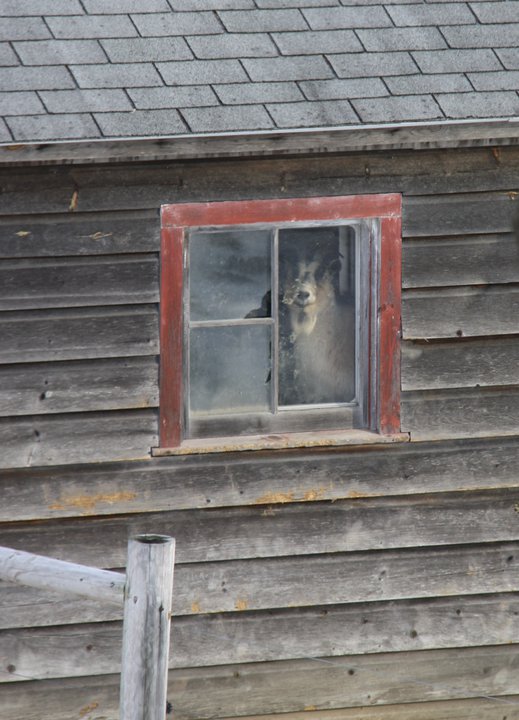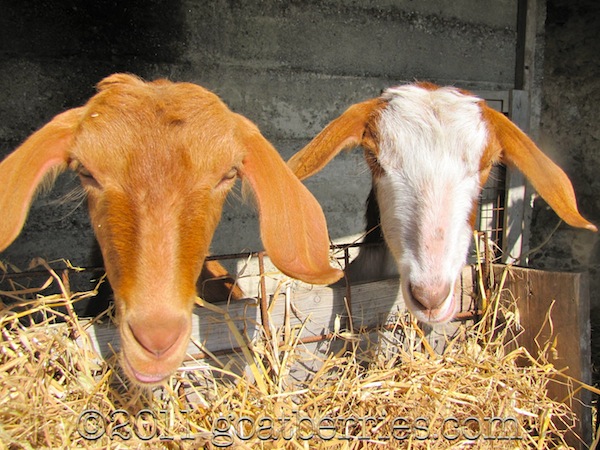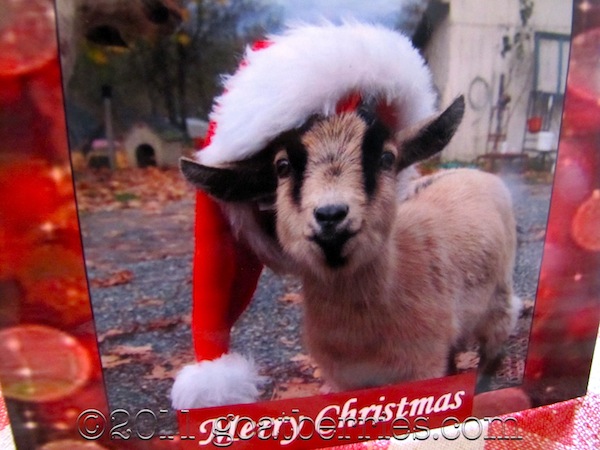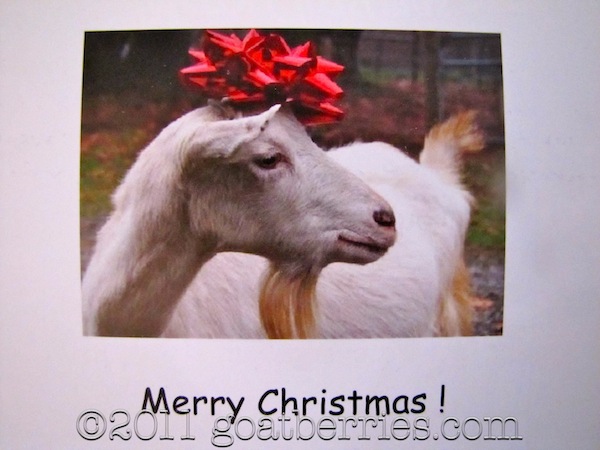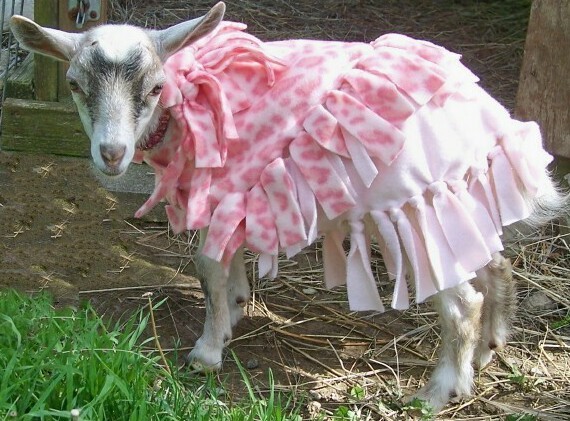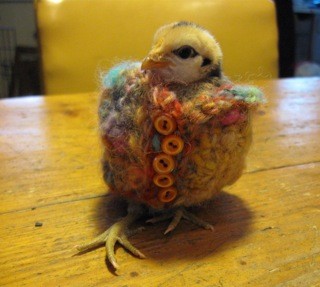Archive for 2011
Goat Symphony Video: Music to Maaaah Ears
My friend Paul (he of the recent GoatSpotting) posted this video on my Facebook wall, and there was just no way I could keep it to maaaaaahself.*
Turn up the sound and rock out to this goat symphony — although probably not a good idea if you’re at work in an office. People might think you’re maaaaaaaad.
Buon weekend!
GoatSpotting: How Much Is That Goat in the Window?
It’s been a while since I’ve posted a GoatSpotting, but I have quite a few darling goaties in the queue for you to enjoy in upcoming posts — remember if you have any goats or goat-related item you’ve spotted out and about, please do send along the photo!
I actually spotted this goat on my friend Paul’s Facebook page after he spotted her in a Wisconsin barn:
What a cutie, eh?
Do you have another caption for this photo? Please share!
And thanks Paul!
The Origins of “Get Your Goat”
My grandmother was fond of using old-fashioned sayings and proverbs, and as a result, I developed a strong appreciation of them. It’s always fun finding out where a familiar saying came from too, which is why I recently looked into where the phrase “get your goat” came from (for the record, I started the draft of this post in December, way before The Huffington Post talked about this).
As commonly used, “get your goat” means to make someone angry or annoyed, but who on Earth would equate a goat with anger or annoyance? They’re so sweet and gentle! Exhibit A:
As it turns out, there’s no clear consensus on the phrase’s origins, but both proposed explanations I’ve found revolve around the idea that goats were kept with other animals to help keep them calm.
The Phrase Finder concludes that the saying is distinctly American dating back to 1909 and sticks by the “commonly repeated story which purports to explain the phrase’s origin is that goats were placed with racehorses to keep them calm. When ne’er-do-wells who wanted the horse to race badly removed it, i.e. they ‘got someone’s goat’, the horse became unsettled and ran badly.” The site admits, though that there’s no evidence to support this etymological tale.
That said, Ye Olde English Sayings discusses the origins of “getting your goat” with reference to “an old English (Welsh?) belief that keeping a goat in the barn would have a calming effect on the cows, hence producing more milk. When one wanted to antagonize/terrorize one’s enemy, you would abscond with their goat rendering their milk cows less- to non-productive.”
Whether the phrase is English or American, the common thread is “goats as the great calmers of nature.”
*After I published this, my mom reminded me that in The Sopranos episode where Tony has bought the racehorse Pie-O-My, the trainers keep a goat in the pen with her to calm her down before races — it *must* be true if Tony Soprano says so, right?!
Do you buy it? Were goats the original horse whisperers and/or cow whisperers?
Does anyone have experience with the calming nature of goats on their other animals?
Horns or No Horns on Goats — Which is Better?
Faithful reader Renee posed a question on the Goat Berries Facebook page recently: What do we goat people feel about horns? I thought this was a great question for discussion, so I’m posting it here — please do add your thoughts on the issue as it can help other goat people make some tough decisions.
First, for anyone who doesn’t know, horns don’t go by sex; that is, you both females and males may have horns. It is a genetic trait (kind of like those adorable wattles), so if you’re breeding goats with horns, you’re probably, although not definitely, going to end up with kids with horns.
My girls are both naturally polled (born without horns), so the horn issue isn’t something we dealt with directly *but* we did aim for hornless, so I suppose you can say that I’m on the “no horn” side –beautiful as they can be. Just look at this dude:
From what I’ve read, anecdotes about how dangerous horns can be were the most persuasive to me. Goat horns can be dangerous not only for the goat caretakers and their families but also for fellow goats and other animals; goats do tend to headbutt in play and sometimes aggression and can do serious damage to others in either case.
Then there’s the possibility of the horns getting stuck in fences, etc., and putting the goat in other compromising positions, which can not only cause stress and difficulty in freeing itself (the goat can do major damage and even kill itself trying to get free), but it can also leave him or her exposed to predators — even a dog can kill a goat if it really wants to.
On the flip side, some people argue that disbudding is inhumane and unnatural as horns are goats’ natural defenses and help them cool off as sweat glands.
There’s a good discussion of this issue from a long-time goat caretaker at Fias Co. Farm, so I highly recommend heading over there for more information on this as well as on proper disbudding procedures. For the uninitiated, “disbudding” is the process of removing goat’s horns and really isn’t for the faint of heart — and quite painful for the kids too. Note that you should disbud within the first week of the kid’s life, so if you’re about to have kids, this is something you should think about sooner rather than later so you’re prepared.
For our goat-raising situation, I’d say disbudding would be best for us if faced with the horn dilemma — but this is a personal decision, of course, and I’d love to hear your take on it.
So, goat peeps, what is your position on horns? Do you goats have horns? If your goats get disbudded, do you do it yourself? Also, are your goats mixed — some polled, some horned? How does that work out?
Goat Adoptions Through Puget Sound Goat Rescue
For Christmas I donated to various goat and donkey-related charities in my family members’ names, and one of those charities was the Puget Sound Goat Rescue.
Becky and Barb of the Rescue sent a card to my brother and sister-in-law with notification of the donation — and also a thank you card to me, which I actually just received because it was sent to my mom’s address in the States and my mom forwarded it. Will you look at this cuteness?
And this is inside:
I was so happy to read that Puget Sound Goat Rescue was able to adopt out 109 goats in 2010 . . . *and* that they decided to name a “gorgeous spotted Nubian” after me (Fabio). How cute!
So I just had to give a shout-out here for Puget Sound Goat Rescue, which is doing a wonderful job rescuing, rehabilitating, and adopting out goats from slaughterhouses, auctions, and abusive situations. They also have a goat outreach program to better inform the public about goats. Of course, all these activities cost money, so even if you can’t adopt a goat right now, please do consider helping Becky and Barb continue their maaaaarvelous work with a donation.
Thanks so much for all you do for the goaties, ladies! Goat kisses to all!
Goat Coats and Other Regretsy Fun
My friend Rebecca who runs Brigolante Guest Apartments in Umbria, Italy and also writes a wonderful blog recently sent me a link to this entry on Regretsy:
Yes, that’s a goat coat made of “Pink Leopard fleece with contrast pink fleece. Fringed edges, velcro closures at neck and tummy.” It’s already been sold, but you can get the pattern if you’d like to make one yourself. Indeed, Furbabies Boutique has quite a few rather adorable sewing and crochet patterns — and not just for animal clothes but also fun socks, which actually make me want to learn to crochet.
Regretsy exists to poke fun at some of the items for sale on Etsy, but in all seriousness, if I lived in a colder climate, I’d put coats on my goats too — I don’t know that I’d go pink leopard fleece, but Clowee the pygmy in the photo really works it! I just don’t know if my girls are *that* into pink.
Now ponchos for chicks? Those I’m not so sure about….
Do your goats wear coats?
Can you recommend goat coats for other readers who might be in the market (and not looking to sew)?


